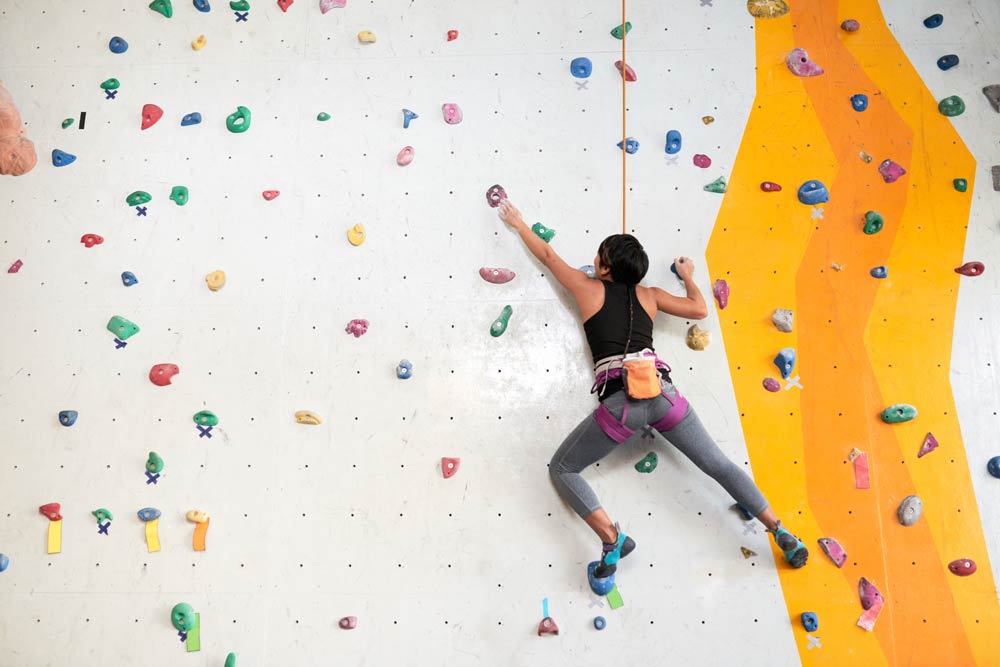Finding Hobbies That Align with ADHD Interests

Discover tips, treatment options, and support strategies from the Finding Focus Care Team

Last Update: February 23rd, 2025 | Estimated Read Time: 3 min
Introduction
Living with ADHD can make everyday activities feel like a constant search for excitement. Whether you struggle with focus, restlessness, or impulsivity, finding hobbies that engage and fulfill you can be a game-changer. Hobbies improve concentration, reduce stress, and provide a sense of accomplishment (Brown, 2006).
People with ADHD often crave novelty due to lower levels of dopamine, the neurotransmitter responsible for motivation and reward (Biederman & Faraone, 2005). This means that hobbies need to be stimulating, rewarding, and engaging to keep interest.
So, how do you find the right hobby? Let’s explore activities that align with ADHD strengths and strategies to stick with them.
What Makes a Great Hobby for ADHD?
Not all hobbies work for ADHD minds. The best activities should:
- Be Engaging: Movement, problem-solving, or creativity help maintain interest (Brown, 2006).
- Offer Quick Rewards: Instant feedback or small achievements boost motivation.
- Have Variety: Novelty keeps ADHD brains engaged.
- Involve Movement: Physical activities improve focus and energy regulation.
- Include Social Interaction: Being part of a group can help sustain interest (Tuckman, 2011).
ADHD-Friendly Hobbies
1. Physical Activities
Exercise naturally boosts dopamine, helping ADHD individuals focus and regulate emotions (Biederman & Faraone, 2005).
- Martial Arts: Builds discipline, focus, and self-control.
- Dancing: Engages both body and mind while being fun.
- Rock Climbing: Requires focus and problem-solving.
- Parkour: Allows for creativity, flexibility, and movement.
- Team Sports: Encourages motivation through social interaction.
2. Creative Arts
Creative activities provide structure while allowing for flexibility (Brown, 2006).
- Painting/Drawing: Encourages self-expression and relaxation.
- Photography: Keeps you moving and engaged.
- Music (Playing an Instrument or Singing): Enhances focus and mood.
- Theatre or Improv: Builds confidence and engages the mind.
- DIY Projects: Offers hands-on problem-solving and creativity.
3. Outdoor Adventures
Nature-based hobbies reduce ADHD symptoms while keeping the brain engaged.
- Hiking: Boosts dopamine and provides movement.
- Gardening: Encourages mindfulness and offers visual progress.
- Camping: Involves planning and problem-solving.
- Geocaching: Combines exploration and navigation.
- Fishing: Encourages patience and relaxation.
4. Strategy and Gaming
Strategy-based games help develop problem-solving and cognitive skills (Tuckman, 2011).
- Board Games (Chess, Catan, Risk): Encourage focus and long-term thinking.
- Puzzle Games (Sudoku, Crosswords, Rubik’s Cube): Improve memory and logic.
- Dungeons & Dragons: Combines storytelling, strategy, and social interaction.
- Card Games (Magic: The Gathering, Poker): Enhance strategic thinking and decision-making.
5. Hands-On Hobbies
Many people with ADHD thrive in activities that involve building or crafting.
- Cooking/Baking: Offers creativity, sensory engagement, and quick results.
- Woodworking: Requires planning, focus, and problem-solving.
- Lego Building or Model Making: Improves patience and fine motor skills.
- Mechanics (Fixing Cars or Bikes): Encourages hands-on learning.
- Knitting/Crocheting: Provides a soothing, repetitive motion.
How to Stick with a Hobby When You Have ADHD
Starting a hobby is easy, but staying engaged can be challenging. Here are some strategies to help:
- Make It Fun: If a hobby starts feeling like work, tweak it or try a different approach.
- Set Goals: Small, achievable goals help maintain motivation (Brown, 2006).
- Mix It Up: Rotate hobbies or add variations to prevent boredom.
- Join a Group: Social accountability increases engagement (Tuckman, 2011).
- Use Reminders: Set alarms or leave visual cues to prompt engagement.
- Be Kind to Yourself: If you lose interest, it’s okay to switch hobbies.
Conclusion
Finding the right hobby can be transformative for individuals with ADHD. Whether you prefer movement, creativity, outdoor activities, or strategic challenges, there’s a hobby that aligns with your strengths. Activities that provide stimulation, flexibility, and rewards create a positive outlet for energy and curiosity.
If you struggle to stick with hobbies, don’t stress. ADHD minds thrive on variety, so experimenting with different activities is part of the journey. The key is to have fun and enjoy the process!
Finding Focus Care Team
We are a group of nurse practitioners, continuous care specialists, creators, and writers, all committed to excellence in patient care and expertise in ADHD. We share content that illuminates aspects of ADHD and broader health care topics. Each article is medically verified and approved by the Finding Focus Care Team. You can contact us at Finding Focus Support if you have any questions!
References
Biederman J. (2005). Attention-deficit/hyperactivity disorder: a selective overview. Biological psychiatry, 57(11), 1215–1220. https://doi.org/10.1016/j.biopsych.2004.10.020
Brown, T. E. (2006). Executive functions and attention deficit hyperactivity disorder: Implications of two conflicting views. Journal of Attention Disorders, 9(3), 329-333. https://eric.ed.gov/?id=EJ729092
Tuckman, A. (2011). Strategies for success in adults with ADHD. Attention Magazine, 17(2), 24-29. https://www.unlockingadhd.com/more-attention-less-deficit-success-strategies-for-adults-with-adhd/





